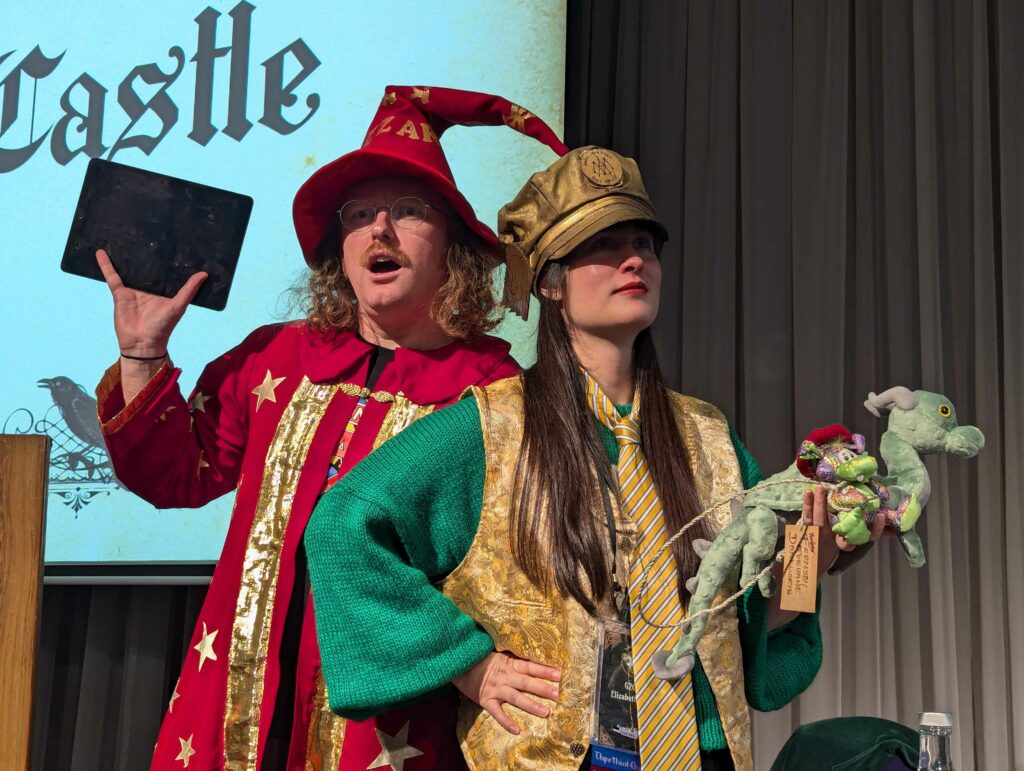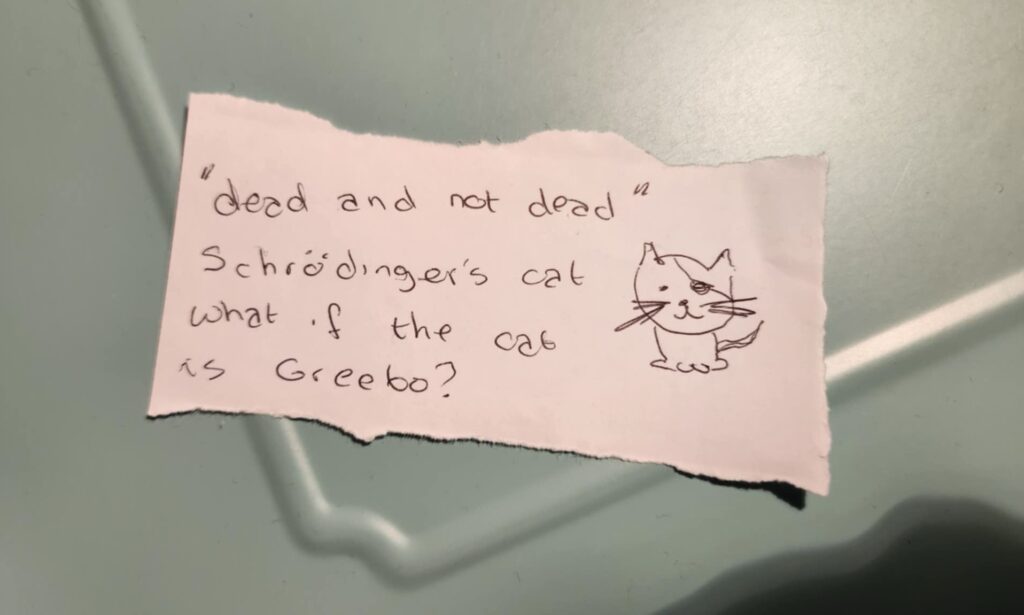#Pratchat38 – Moisten to Steal
Writers, comedians, magicians and con-men experts Nicholas J Johnson and Lawrence Leung join us as we meet the distressingly named Moist von Lipwig in his 2004 debut, Terry Pratchett’s 33rd Discworld novel, Going Postal!
Con-man Moist von Lipwig (aka Albert Spangler) thinks he’s come to the end of the line when he’s hanged by order of Lord Vetinari, Patrician of Ankh-Morpork. But while the world believes him hanged, the city’s tyrant has actually saved him for something bigger: he wants Moist to revitalise the city’s derelict post office. It seems like a hopeless task with no chance of success or escape, what with the mountains of mail, unsatisfactory staff, golem parole officer, and the communications monopoly of the Grand Trunk Sempahore Company, run by the piratical Reacher Gilt. But every con-man needs a challenge…
Pratchett’s first Moist book is a great in to the Discworld at large, with a gripping self-contained story of new technology vs old, capitalism vs the public good, and one man’s lifetime of criminal habits vs his better nature. As well as Moist himself, it introduces such memorable characters as Mr Pump, Stanley the pin collector, and the one and only Adorabelle Dearheart. (Everyone in this book has an amazing name.) It’s not a short book, and we struggle to cover all its themes, twists and turns. Do you love Moist von Lipwig? Could you get over his name? Could you operate a Clacks tower? And just how deep did Vetinari’s plan go, anyway? Join the discussion using the hashtag #Pratchat38.
Podcast: Play in new window | Download (Duration: 2:24:42 — 66.7MB)
Guest Nicholas J Johnson is an author, magician and expert in scams and swindles, earning himself the nickname “Australia’s Honest Con-Man”. His new children’s book, the “autobiographical” Tricky Nick, features magic and time travel and all sorts, and is available now from Pan Macmillan. Find out more about Nick’s live performances and workshops at conman.com.au, or follow him on Twitter at @countlustig.
Guest Lawrence Leung is a comedian, screenwriter and actor, known to Australian audiences from his roles in Offspring and Top of the Lake, and his own shows including Lawrence Leung’s Choose-Your-Own-Adventure and Maximum Choppage, and the feature film Sucker. Find out all the latest about Lawrence, including when you can catch his live-streamed comedy shows, at lawrenceleung.com, or you can follow him on Twitter at @Lawrence_Leung.
You can find episode notes and errata on our web site.
Our plan to cover Sir Terry’s short fiction was via live shows, but since that hasn’t worked out for us this year, in January we’re going to discuss 1998’s short witches story, The Sea and Little Fishes. We’ll also be welcoming our first international guest: Marc Burrows, author of the Pratchett biography The Magic of Terry Pratchett! Send us your questions via social media using the hashtag #Pratchat39.
Want to help us get to the end of our six(ish) year mission and read every Pratchett book – and more? You can support us with a tip, or a subscription for as little as $2 a month, and that’s cuttin’ our own throats! See our Support Us page for details.


